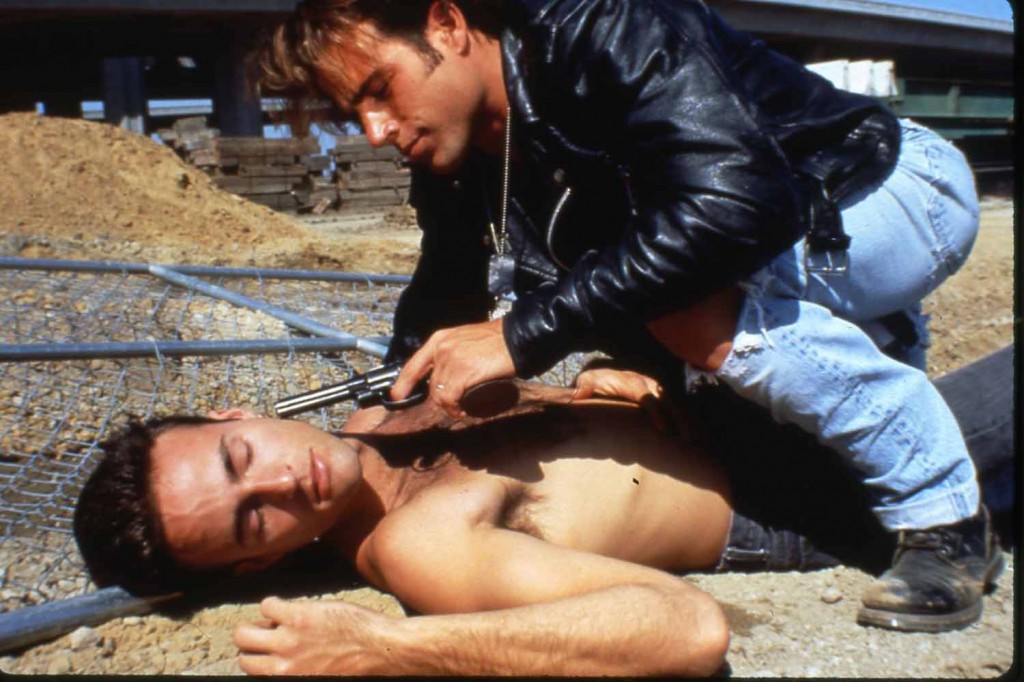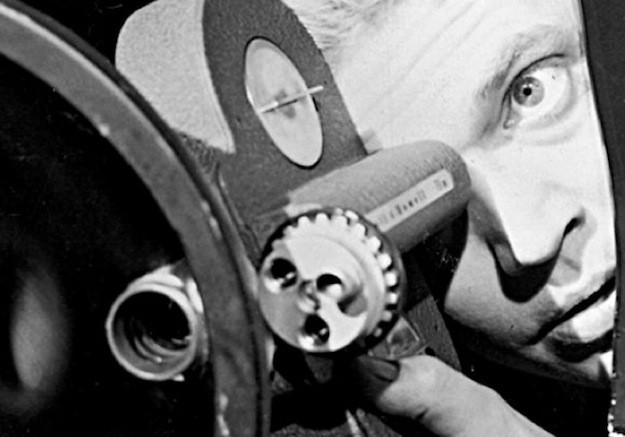A lofty thing, the future. Or time, for that matter. I can barely remember what I did last week and I can’t say with certainty what tomorrow or next week or next year will bring. The future of queer film is no different. I do know, however, that we’ll eventually experience another New Queer Cinema, and the next round will be even more groundbreaking than the first.
This time around, the focus will be less on theme, or technical prowess, or even having sexuality be incidental to the story. The incidentally queer trend will continue but will be overpowered by the old-school, time-tested traditions of character and story. As for technology, we have so many inexpensive ways of creating movies now. Plus, there’s either a film school or online source to teach anyone any aspect of the moving image—it’s unacceptable for a film to lack in production values. Audiences are no longer so willing to forgive bad sound or a poor editing job.
Someone’s always asking about the future of queer cinema; there are many web pages devoted to this question and it’s bound to periodically show up in a film festival interview or panel. So, short of making any further, concrete predictions, what would Cinemulatto like to see in a future queer film landscape? Here are a few things that stand out in our mind.
- Kick-ass stories. I don’t mean stories that simply haven’t been told before. (Although, this is important and we’ll get to it in a moment.) I mean going back to basics and studying the lessons of 1970s cinema, particularly the focus on character, story, and predicament, and on original and complex situations. I’d love for someone to map out a queer film as narratively elaborate as The Sting. I want us to keep things moving and tense. I want us to rely less on dialogue than story, but when we do use dialogue to forward a story, I want it to be powerful and memorable (“Attica! Attica!”).
- Some movies that are mainstream, others that aren’t. In the mainstream versus not mainstream debate, I argue we need both: Movies like Brokeback Mountain and The Kids Are All Right serve the purpose of making our stories more accepted by a larger number of people, which in the end is a victory for queer rights. Films are even taking hold in the corporate world, as Chipotle wows us with its animated short on sustainable farming and Salesforce.com posts a job opening for a “Film Director”. Visual storytelling is in. Why? These companies understand the importance of creating characters and stories that resonate with a wide audience. An underground movement will always exist to breed the next generation of filmic illuminati. So, there’s no reason to not have both the mainstream and underground.
- A transgender revolution. With the TV show Orange is the New Black, this is already happening. Transamerica meant well but there’s way more room for hearing original stories told from the perspectives of those who are actually transgender.
- Continued historical accounts of important stories. We love documentaries, especially those that bring untold stories to life. And speaking of the transgender revolution: more works like MAJOR! a new documentary film should be made. There are so many queer people with significant histories, so we have decades and decades worth of material to draw from. (While you’re at it, check out A Christmas Wishlist for the Future of Queer Cinema.)
- Adaptations sensitively told. We also love a good adaptation. Bugcrush deserved to win best short at Sundance 2011, which was based on a story by Scott Treleaven. Mysterious Skin was a great rendition of Scott Heim’s novel. What about The Well of Loneliness done as a comedy? Who’s down for digging into some Jeanette Winterson or Rita Mae Brown? Any Zami in the house?
- New stories and new “household names”. Like documentaries, we have decades worth of opportunity to dramatize our personal stories and to create memorable roles. I want to see characters whose names are as culturally prominent as Ratso Rizzo, R.P. McMurphy, or Annie Hall. The quirky and quotable shouldn’t be reserved for Napoleon Dynamite. We want more queer bad guys and renegade lesbians. There’s a Bonnie and Clyde out there that crosses genders, I just know it.
- Great acting. How about developing stories with the actors, and rehearsing on camera until it’s perfect and not overdone? We need to spend as much time on training actors as we do on mastering cinematography (unless you can afford to hire Annette Bening). Go Fish was a trailblazing movie but I think we can all agree (can’t we?) that the acting sucked. That was almost 20 years ago so we should know better now. Let’s take the time to really study the acting greats—I’m talking Pacino and De Niro, or Blanchett and Streep—and learn from them. It’s not a sin to appropriate the traditions of classic films and actors.
- Technology. Just because I need to mention this one. Yes, let’s keep on top of new, inexpensive technologies, but never at the expense of character and story.
Away we go to make important films!


